Episodes

Saturday Sep 15, 2018
Abeer Yusuf: Vancouver Love me, Love me Not
Saturday Sep 15, 2018
Saturday Sep 15, 2018
Ep 207 Abeer Yusuf
Vancouver - Love You, Love You Not
Tom Davidoff described Vancouver as a beautiful city created by nature and ruined by man. He of course was talking about his pet project, the cost of housing. Our guest today says that’s just the tip of the iceberg.
Abeer Yusuf, like so many before her, came to Vancouver, gasped at the natural beauty and determined this was going to be a great place to call home. That is, until she started living here. Soon she discovered what so many before her have found about Vancouver’s fickle nature.
You want to love the city and at the same time it does just about everything to make you scratch your head and wonder what you saw in the place when you fell in love with it. You want to stay, you want to leave – you’re torn in both directions.
Housing, yes, but so too transportation, the cost of food, clothing. Yes, there are jobs but career opportunities are hard to come by and so too are friends who can keep a date. As Abeer Yusuf has experienced, “People are super flaky here,” on a dime and at the last minute they will cancel their date with you. A true Vancouver problem that pre-dates Abeer’s arrival by decades.
Are we truly multicultural or do we spend to much time congratulating ourselves about inclusivity and then come up short when it comes to creating integrated communities?
We invited Abeer Yusuf to join us for a Conversation That Matters about the myriad challenges of feeling truly at home in Vancouver.
Simon Fraser University’s Centre for Dialogue presents Conversations That Matter. Join veteran Broadcaster Stuart McNish each week for an important and engaging Conversation about the issues shaping our future.
Please become a Patreon subscriber and support the production of this program, with a $1 pledge https://goo.gl/ypXyDs
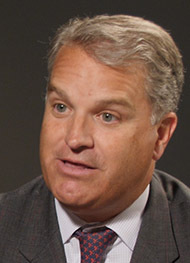
Monday Sep 03, 2018
Gordon McCauley: Putting Canada on the Drug Global Stage
Monday Sep 03, 2018
Monday Sep 03, 2018
Canadians invent many things that go on to be globally significant. Drugs or pharmaceuticals is an area of research that we do very well in, especially when it comes to developing cures and treatments for a wide range of health issues.
While we do a good job conceiving of treatments and doing the research, we don’t do a good job of bringing those products to the market. By the time the research has finished, ownership of the intellectual property frequently leaves Canada and moves to its new home in Europe or the United States.
It’s a shame because Canada makes up just point five per cent of the global population, yet we produce over 5% of the world’s research in drug development. We’ve figured out the idea and research part well; what we have trouble with is commercializing our discoveries once the human proof of concept stage has been reached.
Canada is the only advanced pharma market in the world that does not have a billion dollar company to anchor the pharmaceutical industry. We’ve had them only to see them go away. At one time we had QLT in Vancouver, which is an example of our intellectual property being acquired by a larger global player that takes the company offshore.
The result is a loss to ongoing research and to the Canadian economy. How then do we change that? Enter the Centre for Drug Research and Development, a joint effort between Simon Fraser University, UBC and the BC Cancer Agency – an initiative that the Federal Government recognized as invaluable and provided funding to expand the reach of the CDRD across the country.
We invited Gordon McCauley of the CDRD to join us for a Conversation That Matters about nurturing, fostering, retaining and commercializing our world-class ideas, talent and research in Canada.
Simon Fraser University’s Centre for Dialogue presents Conversations That Matter. Join veteran Broadcaster Stuart McNish each week for an important and engaging Conversation about the issues shaping our future.
Please become a Patreon subscriber and support the production of this program, with a $1 pledge https://goo.gl/ypXyDs
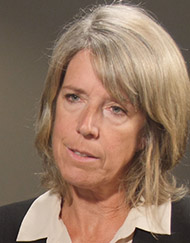
Sunday Aug 26, 2018
Kim Thompson: Corporate Social Responsibility
Sunday Aug 26, 2018
Sunday Aug 26, 2018
Ep 205 Kim Thompson
Corporate Social Responsibility
Is corporate social responsibility a public relations exercise? Is it a nice thing to ascribe to and at the same time easy to sluff off? The answer is a combination of yes and no. On the surface, it’s easy to say your company believes in supporting and contributing to the community as a whole.
The cost of a CSR program, however, challenges the keepers of the money who frequently question the value. Accountants and Financial Officers are asked to look at everything as a return on investment and, in doing so, may determine a responsibility program is beyond the company’s budget.
While that may have been the traditional line of thinking, it no longer applies. It alienates staff who are demanding that the work they do contribute to the whole of society rather than just the bottom line. According to an MIT Sloan Management Review, “Using Corporate Responsibility to Win the War for Talent,” employers with a CSR program enjoy greater employee satisfaction and retention.
Employees, customers and investors are all taking CSR programs into account when they sign on, when they purchase and when they invest.
We invited Kim Thompson of Aviso Wealth to join us for a Conversation That Matters about why Corporate Social Responsibility needs to be a part of every company’s mission statement and practices.
Simon Fraser University’s Centre for Dialogue presents Conversations That Matter. Join veteran Broadcaster Stuart McNish each week for an important and engaging Conversation about the issues shaping our future.
Please become a Patreon subscriber and support the production of this program, with a $1 pledge https://goo.gl/ypXyDs
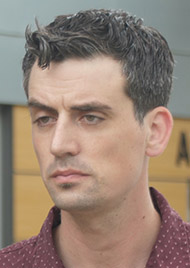
Tuesday Aug 21, 2018
Dr Lee MacKay - Preparing for the Baby Boomer Tsunami
Tuesday Aug 21, 2018
Tuesday Aug 21, 2018
Ep 204 Dr Lee MacKay
Preparing for the Baby Boomer Tsunami
Over the past 20 years, the portion of the provincial budget dedicated to health care has gone from 30 per cent to more than 40 and rising. Currently, it costs BC $19.5 Billion annually and that cost will go up another $2.6 billion when the Medical Services Plan premiums are eliminated. At some point soon the cost of health care will undermine the provincial government’s ability to provide education, social services, transportation and everything else in its scope of responsibilities.
Universal Primary Care is designed to ensure everyone in British Columbia has a doctor. A doctor who knows them, their health history and in many cases the history of their immediate family. The challenge, however, is setting a timely appointment. On average patients wait three weeks to see their doctor.
That wait time is motivating an increasing number of people to utilize the emergency department of the nearest hospital as their walk-in clinic. In doing so, they are plugging up the system and driving up costs.
Interior Health sees the solution in a realignment of resources and personnel who are qualified to expand their scope of practice and speed up care to patients in their physician’s office or a walk-in clinic.
We invited Dr Lee Mackay, who practices medicine in Nelson, BC to join us for a Conversation That Matters about realigning resources and staff in the Grand Forks Boundary area in an attempt to get ahead of the impending Baby Boomer tsunami.
Simon Fraser University’s Centre for Dialogue presents Conversations That Matter. Join veteran Broadcaster Stuart McNish each week for an important and engaging Conversation about the issues shaping our future.
Please become a Patreon subscriber and support the production of this program, with a $1 pledge https://goo.gl/ypXyDs
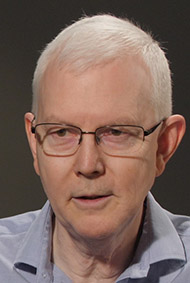
Sunday Aug 19, 2018
Bruce Sharpe: The Future of the Electric Car
Sunday Aug 19, 2018
Sunday Aug 19, 2018
Electric cars, are they the future of individual transportation? The answer depends on who you’re talking to, electric car enthusiasts will say, “Oh Yeah”, however, energy transition specialist Markam Hislop says, “maybe, maybe not.”
That uncertainty arises from the fact that electric vehicles make up just two per cent of all automobiles in North America and much less than one per cent globally. Add in the fact the electric car was introduced more than 30 years ago, raising the question, “why are sales so slow?”
The answers are many and they include range anxiety, the cost, a limited number of recharging stations, repair facilities and uncertainty over resale value. On the plus side, concern over greenhouses gases, the cost of gasoline and technological advances are boosting interest in electric cars.
As we move forward infrastructure and subsidy purchase programs will be key factors in attracting more owners of electric cars.
We invited the President of the Vancouver Electric Vehicle Association, Bruce Sharpe to join us for a Conversation That Matters about the future of the electric vehicle.
Simon Fraser University’s Centre for Dialogue presents Conversations That Matter. Join veteran Broadcaster Stuart McNish each week for an important and engaging Conversation about the issues shaping our future.
Please become a Patreon subscriber and support the production of this program, with a $1 pledge https://goo.gl/ypXyDs
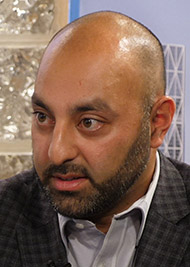
Wednesday Aug 08, 2018
Justin Dhaliwal: A Guide to Being a Licensed Marijuana Producer
Wednesday Aug 08, 2018
Wednesday Aug 08, 2018
Ep 202 Justin Dhaliwal
A Guide to Being a Licensed Marijuana Producer
The legalization of marijuana is just around the corner. The market has been projected to be worth more than $10 billion. For some that suggests the marijuana industry is going to be a gold rush, that is until you look inside.
It is a labyrinth of rules, regulations, background checks, banks that won’t give you an account, a reliance on investors and there are no guarantees you’ll get a license. The government won’t be propping you up, in fact it will be watching you very closely to ensure your products meet exacting standards and that everything you do conforms to the law.
There are, however, entrepreneurs who think it’s worth the risk. And risk is the operative word. Just because marijuana and the production of it will become legal in Canada, it doesn’t mean it’s legal anywhere else except Uruguay. The United States has already stated that if you work in or invest in marijuana you could be banned from entry to the US for life.
We invited medical marijuana entrepreneur Justin Dhaliwal to join us for a Conversation That Matters about the process, the risks and the benefits of obtaining a license to produce cannabis.
Simon Fraser University’s Centre for Dialogue presents Conversations That Matter. Join veteran Broadcaster Stuart McNish each week for an important and engaging Conversation about the issues shaping our future.
Please become a Patreon subscriber and support the production of this program, with a $1 pledge https://goo.gl/ypXyDs
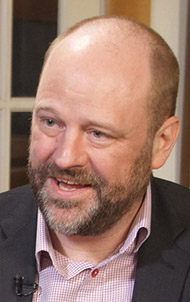
Monday Jul 30, 2018
Stephen Harrington: Future Proofing Canada's Workforce
Monday Jul 30, 2018
Monday Jul 30, 2018
Ep 201 Stephen Harrington
Future Proofing Canada’s Workforce
We are in the midst of the fourth industrial revolution and the impact it will have on work is dramatic. Rather than creating millions of jobs, the new economy will displace old technology and jobs with either automation or professions that require very few humans.
How then do you survive? What skills are required to meet the needs of the workplace of the future? Will full time jobs become a thing of the past? Will we all need to become entrepreneurs as we learn to survive in a gig economy?
One of the challenges facing Canada is our fractured education agenda. Each province and territory is different and there is no national strategy to tie into. We are at a critical junction in the digital economy transition where government, educational institutions and businesses need to work together to understand the future of work and then take action.
A made-in-Canada solution that includes a range of social innovations that may or may not include a universal basic income is on the horizon. How we prepare for the coming changes will either protect Canadian jobs or place them at risk.
We invited Stephen Harrington, the National Lead of Deloitte’s Talent Strategy, to join us for a Conversation That Matters about the intelligence revolution and how to future proof Canada’s workforce.
Simon Fraser University’s Centre for Dialogue presents Conversations That Matter. Join veteran Broadcaster Stuart McNish each week for an important and engaging Conversation about the issues shaping our future.
Please become a Patreon subscriber and support the production of this program, with a $1 pledge https://goo.gl/ypXyDs
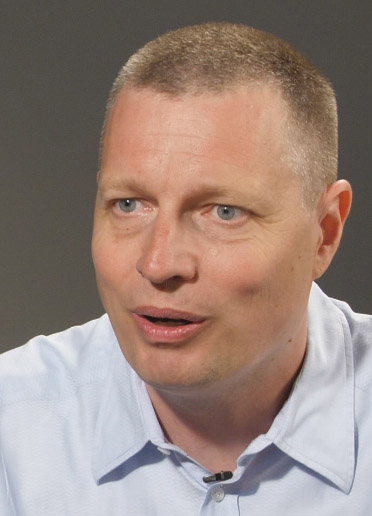
Tuesday Jul 24, 2018
Andrey Pavlov - Vancouver's Commercial Real Estate Crisis
Tuesday Jul 24, 2018
Tuesday Jul 24, 2018
Ep 200 Andrey Pavlov
Vancouver’s Out of Control Commercial Real Estate Market
Walk down Vancouver’s Robson Street these days and you’ll see store after store papered over. The businesses that used to occupy the spaces are empty; the shops have “For Lease” signs on them.
Those businesses shut down because the cost of rent has skyrocketed in harmony with the skyrocketing value and subsequently the skyrocketing property taxes of commercial real estate – a market that was ignited when the Provincial Government introduced the “Foreign Buyers Tax” on residential properties.
To people looking to invest in Vancouver Real Estate, the "go home" tax didn’t make them walk away from owning land in Greater Vancouver; they merely shifted their focus. They were able to do this because the Province’s publicity infused, vote getting campaign designed to cool the housing market didn’t include a “stay out of BC” clause on commercial real estate.
There are no school taxes, no empty home taxes, no foreign owner taxes on commercial and industrial real estate. Human beings did what they always do, they simply adapted to government policies and found ways around the rules in an effort to meet their own needs.
In doing so they are driving up commercial property values, which in turn drive up rental rates and property taxes. Tenants are not only seeing rising rental rates, they are also responsible to pay the increased property taxes which in turn are driving many independent businesses out of business. The only companies that can afford the rent are national and international chains which charge more for their goods in Vancouver than in any other North American city.
Along the way, the very soul of Vancouver’s retail market is disappearing along with thousands of jobs.
We invited Andrey Pavlov, a Finance Professor at the Beedie School of Business to join us for a Conversation That Matters about the unintended consequences of a tax that forgot to look at the downstream effect it would have.
Simon Fraser University’s Centre for Dialogue presents Conversations That Matter. Join veteran Broadcaster Stuart McNish each week for an important and engaging Conversation about the issues shaping our future.
Please become a Patreon subscriber and support the production of this program, with a $1 pledge https://goo.gl/ypXyDs
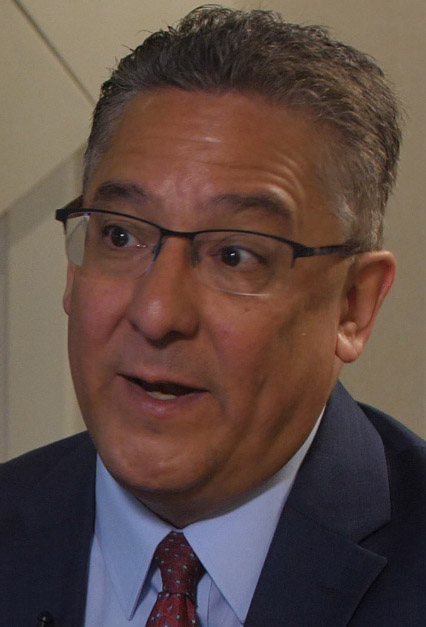
Monday Jul 16, 2018
Marijuana - Learning from Washington State
Monday Jul 16, 2018
Monday Jul 16, 2018
Rick Garza
Marijuana, What Can We Learn from Washington State?
On October 17, 2018, Canada will become the second nation, after Uruguay, to legalize marijuana. In doing so we have stepped outside of our commitment to the United Nations to restrict the use of Schedule 1 controlled substances. To date, the UN and other nations have not responded negatively to our new legislation.
Perhaps they are waiting and watching before determining if a response is required. Perhaps we can establish national protocols that will become an international standard. But where do we turn to for insights into the path from prohibition to legalization?
The first state in the United States to legalize marijuana was Washington State, what lessons can we learn from its experience with legalization?
Does marijuana use increase? Do DUI’s rise, how do you measure, monitor and ensure the highest standards? And how do you ensure use among teens does not increase? The issues are many and they cover everything from policing to public health, growing, producing, quality, retail and tax collection.
Will banks allow marijuana producers, processors and retailers to open bank accounts? Without them how are taxes paid? In Washington State, the national banks all said they were not going to launder drug money. The state had to pass a bill that allowed local banks to accept money from registered marijuana retailers and producers. Do we have to do the same here in Canada?
These are just some of the many issues that will arise and need to be addressed.
We invited Rick Garza, the Director of the Washington State Liquor and Cannabis Board to join us for a Conversation That Matters about the lessons our neighbour to the south has learned since legalizing marijuana in 2012.
Simon Fraser University’s Centre for Dialogue presents Conversations That Matter. Join veteran Broadcaster Stuart McNish each week for an important and engaging Conversation about the issues shaping our future.
Please become a Patreon subscriber and support the production of this program, with a $1 pledge https://goo.gl/ypXyDs
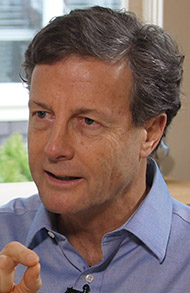
Sunday Jul 08, 2018
Mark Jaccard - Reducing Carbon Through Regulations
Sunday Jul 08, 2018
Sunday Jul 08, 2018
Ep 198 Mark Jaccard
Reducing Carbon Through Regulation
Carbon taxes make governments feel good about their commitment to reducing the production of greenhouse gases. They are, however, not an effective tool, it annoys taxpayers who simply pay more while continuing to live their lives the way they did before.
In British Columbia the money, in part, goes to low income earners, Northern and Rural Homeowners and as a tax incentive to industries that reduce their emissions. According the government’s website, these incentives help keep BC industries competitive. And finally some of the money is dedicated to, “supporting investment in eligible emissions reduction projects”
But, are carbon taxes really working? Following the introduction of the carbon tax in BC, emissions did drop, however, as of 2014, which is the last reporting year on the provincial government’s website, total emissions had returned to 2008 levels.
An alternative approach to changing behavior is to simply change the rules. The government has the power to tweak, refine and enhance rules without having to pass bills in the house. Rules manufacturers and industry have no choice but to follow.
Regulations provide legislators with the ability to force the market into new ways of functioning that taxes do not. California is an example that demonstrates the effect regulations have on the altering of industry and consumer behaviour. The push to move toward electric vehicles has largely come about thanks to a shift in regulations rather than an increase in taxes.
We invited Mark Jaccard, a professor of sustainable energy in the School of Resource and Environmental Management at SFU, to join us for a Conversation That Matters about the ways in which we can nudge, control or force all of us to transition away from fossil fuels.
Simon Fraser University’s Centre for Dialogue presents Conversations That Matter. Join veteran Broadcaster Stuart McNish each week for an important and engaging Conversation about the issues shaping our future.
Please become a Patreon subscriber and support the production of this program, with a $1 pledge https://goo.gl/ypXyDs

